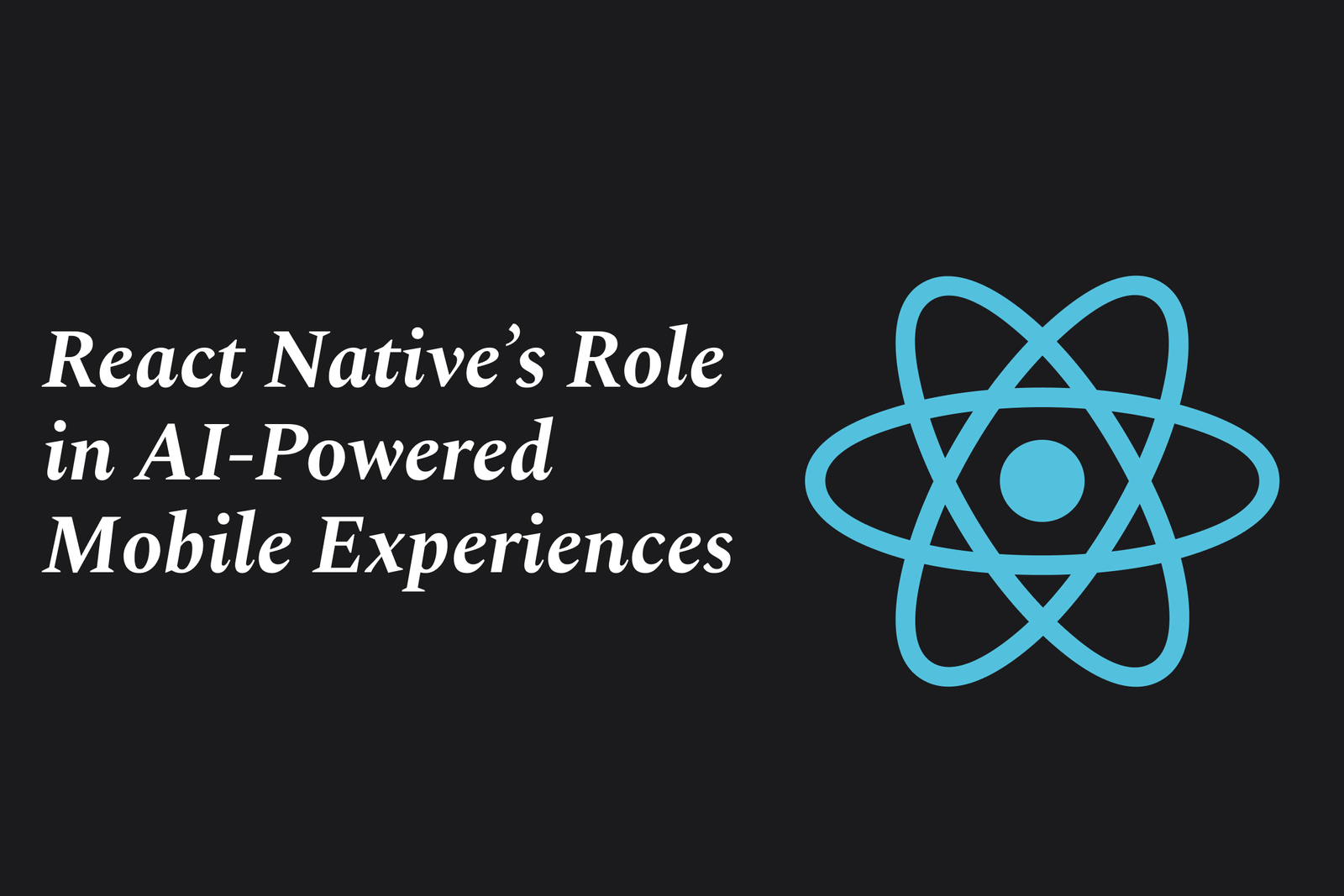React Native?S Role In AI-Powered Mobile Experiences
React Native enables fast, cross-platform mobile app development, making it ideal for integrating AI features like ML models, voice recognition, and personalization. Its native module support ensures efficient AI processing, delivering seamless, intelligent mobile experiences across iOS and Android.
React Native’s Role in AI Powered Mobile Experiences
1 ) Overview of React Native in AI Driven Applications
React Native is a popular cross platform framework that enables developers to build mobile applications for iOS and Android using a single codebase. Its flexibility and extensive community support make it a preferred choice for integrating AI technologies into mobile experiences today.
2 ) Benefits of Using React Native for AI Powered Apps
Cross Platform Development: React Native allows AI powered features to be deployed quickly on multiple platforms without rewriting code, accelerating time to market.
Rich Ecosystem: Availability of numerous libraries and plugins facilitates the integration of AI models, APIs, and services.
Performance Efficiency: React Native's bridge architecture supports native modules, enabling AI heavy computations to be offloaded to native code for better performance.
User Experience Consistency: It ensures highly responsive and seamless user interfaces crucial for AI applications that demand real time interactions.
3 ) Integration with AI Technologies
React Native apps can incorporate various AI capabilities such as natural language processing, image recognition, voice assistants, and predictive analytics by connecting with cloud based AI services or embedding on device ML models. Technologies like TensorFlow Lite, Core ML, and ML Kit can be interfaced using native modules wrapped in React Native components.
4 ) Use Cases Demonstrating React Native’s Effectiveness
Many leading companies leverage React Native for AI enhanced mobile apps that provide personalized recommendations, smart automation, and augmented reality features. The framework supports the building and scaling of these apps while delivering high user engagement due to robust performance.
5 ) Conclusion: React Native as an Enabler of AI Mobile Innovation
React Native’s combination of rapid development, cross platform capabilities, and native performance support makes it an excellent tool for crafting sophisticated AI powered mobile experiences. It empowers developers to bring intelligent, data driven features to users efficiently, shaping the future of mobile applications.
https://justacademy.in/news-detail/android-quick-settings-customization
https://justacademy.in/news-detail/how-react-native-is-dominating-e-commerce-in-2025
https://justacademy.in/news-detail/react-native-workshops-&-bootcamps-in-india
https://justacademy.in/news-detail/react-native-expo-bare-workflow:-what-you-should-know
https://justacademy.in/news-detail/react-native?s-new-hooks-you-didn?t-know-you-needed
Related Posts
Java supports GDPR and data privacy by enabling secure data handling through encryption, controlled access, and precise data management. It allows developers to minimize PII exposure, ensure data confidentiality, and design workflows that comply with data protection regulations effectively.
Java code quality tools have evolved to include advanced static analysis, integrated security checks, and AI-powered code reviews. These updates help developers detect bugs, enforce coding standards, and enhance security, streamlining the development process and improving overall code reliability.
Java remains a cornerstone in big tech companies, evolving with modern features like records, pattern matching, and virtual threads. Its robust ecosystem, enhanced performance, and growing AI integrations keep it vital for both legacy systems and innovative new projects.
Java and CI/CD pipeline optimizations streamline Java application development by automating builds, tests, and deployments. They improve efficiency through parallelization, caching, and secure secrets management, enabling faster feedback loops and more reliable, scalable software delivery.
Java supports modern cryptography standards through its flexible Java Cryptography Architecture (JCA), enabling integration of advanced algorithms like AES, EdDSA, and post-quantum tools. Libraries like Bouncy Castle offer FIPS-certified, hardware-accelerated implementations for secure development.
Java 23 enhances record patterns by enabling concise, direct destructuring of record components within pattern matching, simplifying type checks and data extraction. This improvement boosts code readability and expressiveness by reducing boilerplate in handling immutable data classes.
Java remains a top choice for mobile app backends, powering scalable, secure, and high-performance server-side solutions. Latest trends include cloud-native microservices, reactive programming, and enhanced JVM optimizations, enabling efficient, flexible, and robust mobile backend development.
Java SE 24 and LTS Java SE 21 offer enhanced features and performance, while Apache Spark 4.0.0 introduces Scala 2.13 support and advanced ML and SQL capabilities. Together, they empower developers to build scalable, high-performance data applications with modern tools.
JUnit 5 modernizes Java testing with a modular architecture, improved assertions, and seamless Java 8+ support. Beyond JUnit, tools like Mockito and AssertJ enhance mocking and assertions, creating a powerful, flexible ecosystem for writing clean, efficient Java unit tests.
Java plays a pivotal role in cloud automation tools by providing a robust, platform-independent language used to build scalable automation frameworks like Jenkins and Selenium, enabling efficient CI/CD pipelines, testing, and orchestration across diverse cloud environments.










